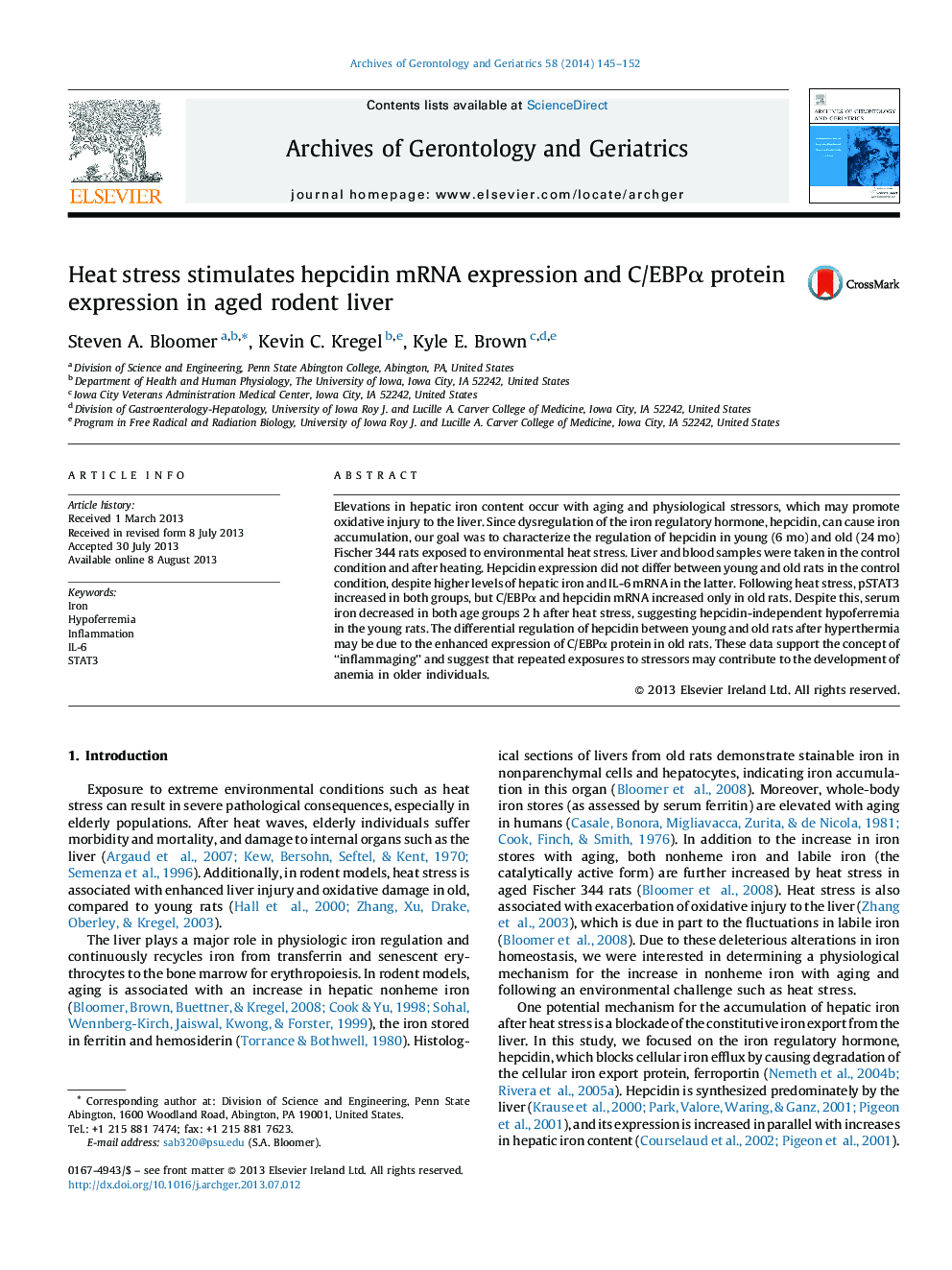| Article ID | Journal | Published Year | Pages | File Type |
|---|---|---|---|---|
| 1903308 | Archives of Gerontology and Geriatrics | 2014 | 8 Pages |
Elevations in hepatic iron content occur with aging and physiological stressors, which may promote oxidative injury to the liver. Since dysregulation of the iron regulatory hormone, hepcidin, can cause iron accumulation, our goal was to characterize the regulation of hepcidin in young (6 mo) and old (24 mo) Fischer 344 rats exposed to environmental heat stress. Liver and blood samples were taken in the control condition and after heating. Hepcidin expression did not differ between young and old rats in the control condition, despite higher levels of hepatic iron and IL-6 mRNA in the latter. Following heat stress, pSTAT3 increased in both groups, but C/EBPα and hepcidin mRNA increased only in old rats. Despite this, serum iron decreased in both age groups 2 h after heat stress, suggesting hepcidin-independent hypoferremia in the young rats. The differential regulation of hepcidin between young and old rats after hyperthermia may be due to the enhanced expression of C/EBPα protein in old rats. These data support the concept of “inflammaging” and suggest that repeated exposures to stressors may contribute to the development of anemia in older individuals.
